Conciliation of discrimination complaints
My recent article ‘Ouch! Disability discrimination hurts. How does the law protect us?, described Australia’s discrimination laws and the process for resolving a discrimination complaint under the key piece of legislation, the Disability Discrimination Act 1993 (Cth) (the Act).
To recap, a complaint is lodged with the Australian Human Rights Commission (the Commission). If the President of the Commission considers the complaint has merit, it will examine the complaint further and try and resolve it by conciliation.
That is, the Commission will appoint an impartial person (the conciliator) who has good knowledge of the Act and experience in resolving complaints to bring the parties together and work with them to try and resolve the dispute.
Examples of resolved discrimination complaints (intellectual disability)
The bulk of discrimination complaints made to the Commission relate to physical disability, such as deafness, blindness or restricted mobility. Only a small number related to intellectual disability.
You may then ask, what types of behaviour does the Commission to be, or potentially be, discriminatory against people with intellectual disability? And what will making a complaint to the Commission achieve?
The best way to answer this is to take a look at some real-life conciliated discrimination cases.
Example 1 – Accommodation
A mother whose son has an autistic disorder complained that her public housing accommodation did not meet his needs to have his own bedroom and a safe play area. The complaint was resolved when the authority advised that the family would be given priority access to more suitable accommodation.
Example 2 – Access to goods, services and facilities
A man with an intellectual disability complained that he had been unable to book holiday accommodation at several venues because a credit card was required. He had not been able to gain access to a credit card because of his only income was the Disability Support Pension. The complaint was settled when the venues agreed to accept alternative forms of payment.
Example 3 – School education
A mother and father complained that their daughter, who had attention deficit and hyperactivity disorder, was receiving inadequate support at school to enable her to learn effectively and remain safely at school during the day. The complaint was resolved when the education authority agreed to fund an assessment of the girl’s needs and options to address her specific needs at school.
A mother complained that her son’s school had not taken appropriate steps to accommodate her son’s auditory processing difficulty. While the school did not concede that it had acted in a discriminatory manner, to resolve the complaint it agreed to meet with the family to develop an individual education plan for the student, to ask a speech pathologist to input into the plan, and to review the plan after four months.
The parents of a boy with an intellectual disability complained that his school had discriminated against him by not fully including him in classroom activities or excursions and by required them to collect their son earlier than the finishing time for other students. The school noted concerns regarding his ability to participate effectively, as well as safety issues, based on his tendency to wander from the school grounds. While the school did not concede that it had acted in a discriminatory manner, to resolve the complaint it agreed to spend an additional $3,500 on individual tutoring for the boy, and to monitor his progress with this additional support.
The father of a boy with dyspraxia complained that his son was not receiving sufficient accommodation to afford him equal opportunity in secondary school exams. The complaint was resolved when the education authority advised that new technology would allow the boy to access digital recordings of exam material, and the school would allow him an additional 10 minutes in every hour of exams to manage the technology.
Example 4 – Vocational education
The mother of a young man with a learning disability complained that he had been refused enrolment in a TAFE program and advised that the TAFE would not provide adjustments to accommodate his disability. The complaint was resolved when the TAFE agreed to enrol the young man and develop a reasonable adjustment plan to accommodate his learning needs.
Example 5 – Transport
A woman complained that an airline had told her sister with intellectual disability upon flight check-in that, as she was a ‘minor’, she could not travel unaccompanied. The sister was over 50 years old and had a high level of capacity, including holding licences to operate various machinery. The complaint was settled when the airline conceded that the sister was entitled to travel unaccompanied, apologised for the incident and agreed to pay compensation for the embarrassment caused to her by it. The airline also committed to reviewing its information and training for staff.
Example 6 – Employment
The father of a man with an intellectual disability complained that his son, who was employed in a café as a casual kitchen hand, had been paid below the award rate. The man had left the job and secured employment elsewhere before the complaint was lodged. Although the employer denied any wrongdoing, he agreed to provide the former employee with an amount of $422.00, which was the difference between what the man was actually paid, and what he would have been paid had the award rate been applied. The respondent acknowledged that the complainant’s son had been a conscientious worker and provided him with an employment reference.
Example 7 – Access to Commonwealth services
A woman who has a learning disability complained that a Commonwealth Government service agency had locked her access to their online services because she had disclosed her password to her husband, so that he could assist her to use the services. The complaint was resolved when the agency restored her online access.
Key takeaways
It is important to note that the above (and other) real-life conciliation outcomes do not set legally binding precedents, as do decisions of a court.
They do however provide guidance as to the types of complaints that the Commission conciliates, and how they might be practically resolved by conciliation.
As the examples suggest the focus of conciliation is:
- to try and resolve the complaint in the fairest, quickest and most practical way; and
- not on trying to resolve legal issues, or prove or disprove that discrimination, as defined by the Act, has occurred.
Fortunately, through conciliation, many discrimination complaints are resolved in favour of the person with intellectual disability. It is also advantageous to the person or entity against whom the complaint is brought, as it not only closes the complaint, it increases their awareness about how to make their service more accessible and inclusive, and the steps they can take to avoid future complaints.
References
- Australian Human Rights Commission website at https://humanrights.gov.au/complaints.
- The conciliation examples used in this article have been extracted from the Australian Human Rights Commission’s online conciliation register. This register contains de-identified summaries of select past, resolved discrimination complaints.





